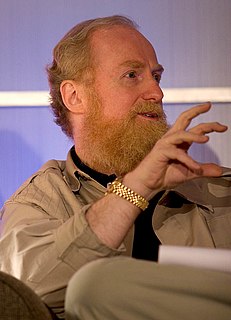A Quote by Neri Oxman
The most beautiful products or the most elegant or seductive products, in my mind, are those that tell a story of a process.
Related Quotes
Television screens saturated with commercials promote the utopian and childish idea that all problems have fast, simple, and technological solutions. You must banish from your mind the naive but commonplace notion that commercials are about products. They are about products in the same sense that the story of Jonah is about the anatomy of whales.
When a company is not being guided by the products they make and what the customers need, but by how they can manipulate the system - get regulations on their competitors, or mandates on using their products, or eliminating foreign competition - it just lowers the overall standard of living and hurts the disadvantaged the most.
Part of America's industrial problems is the aim of its corporate managers. Most American executives think they are in the business to make money, rather than products or service. The Japanese corporate credo, on the other hand, is that a company should become the world's most efficient provider of whatever product and service it offers. Once it becomes the world leader and continues to offer good products, profits follow.








































